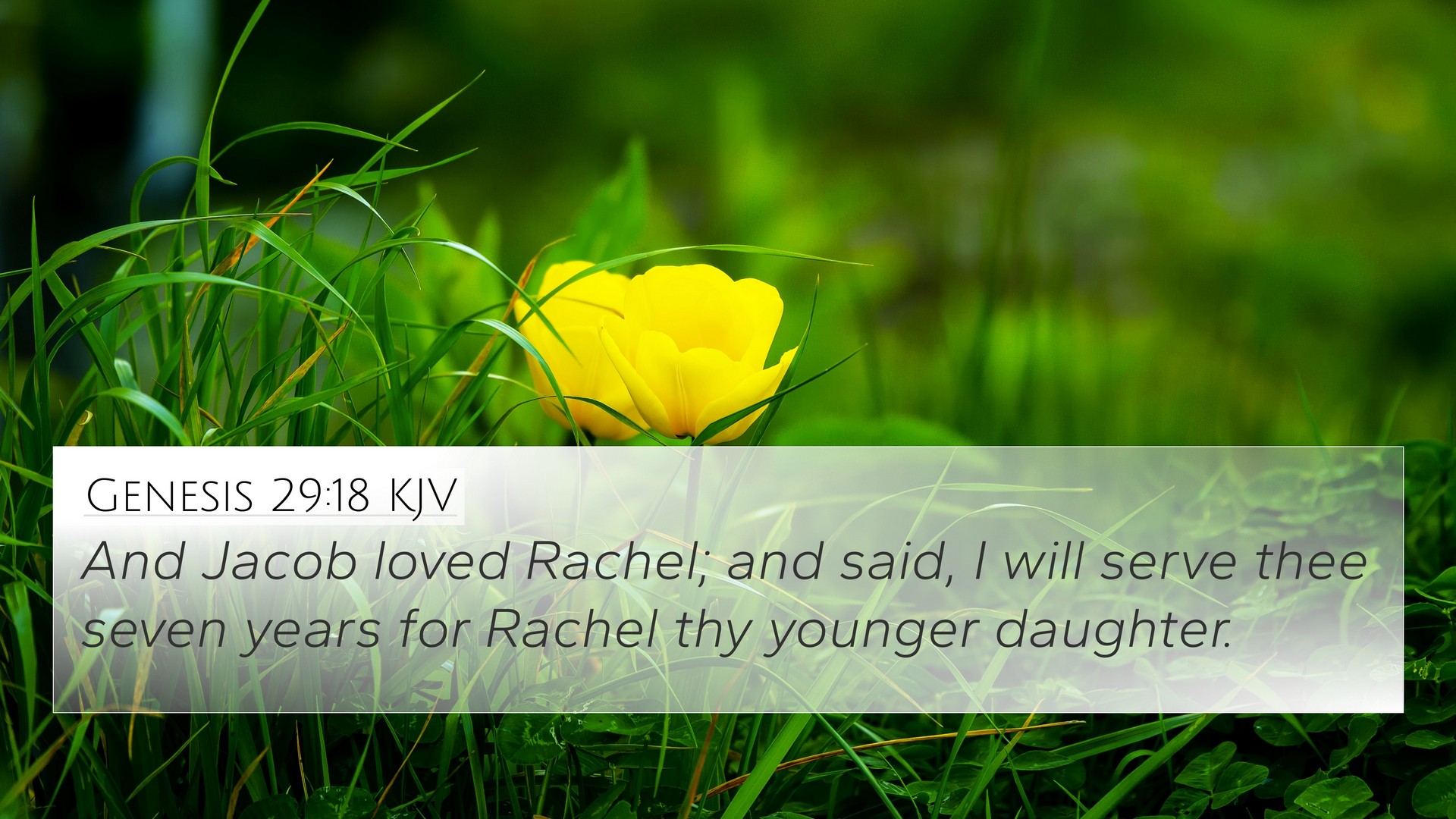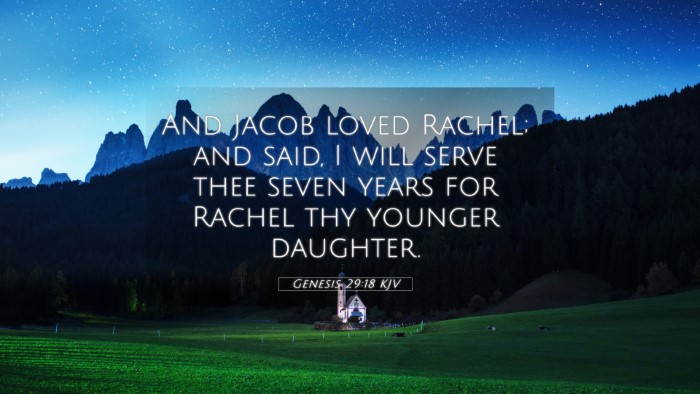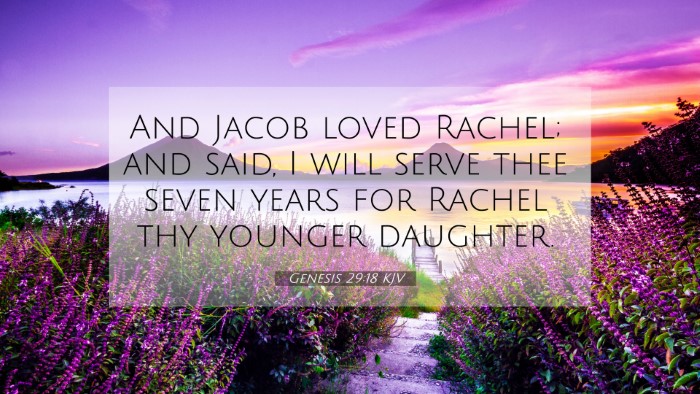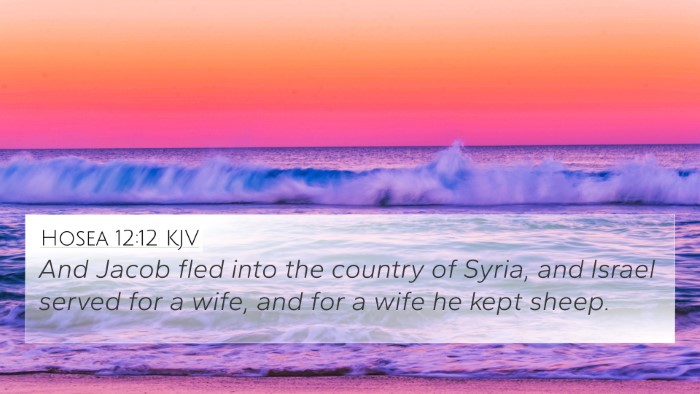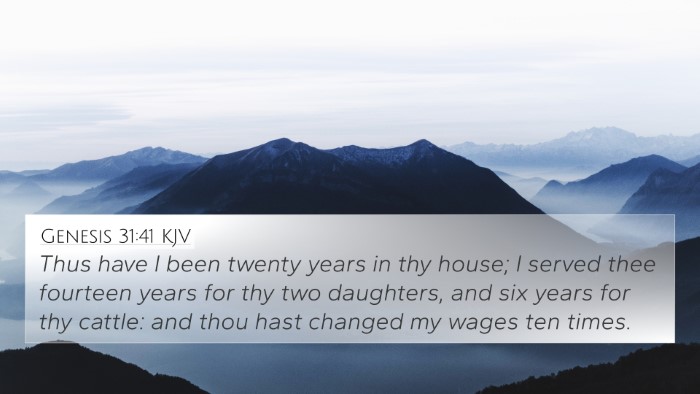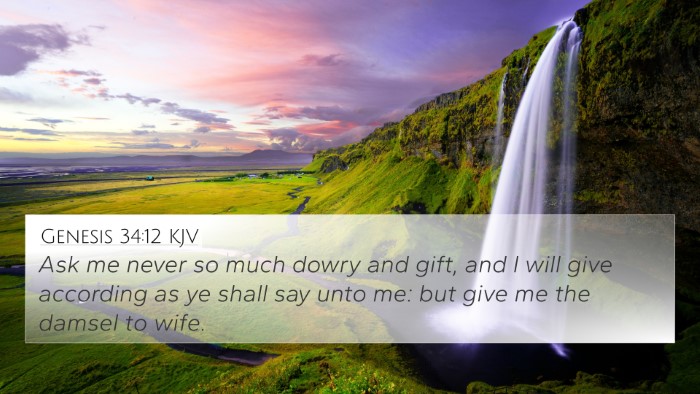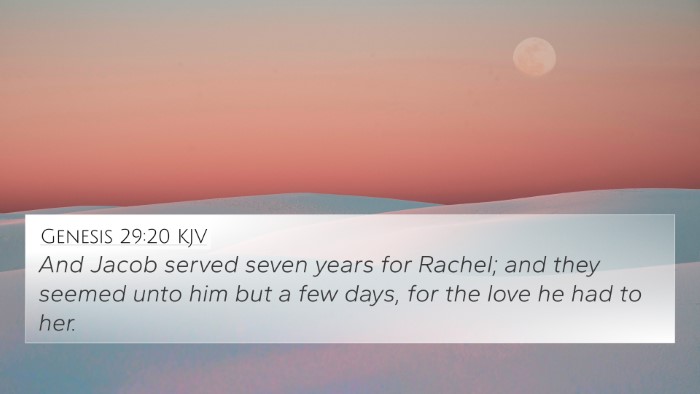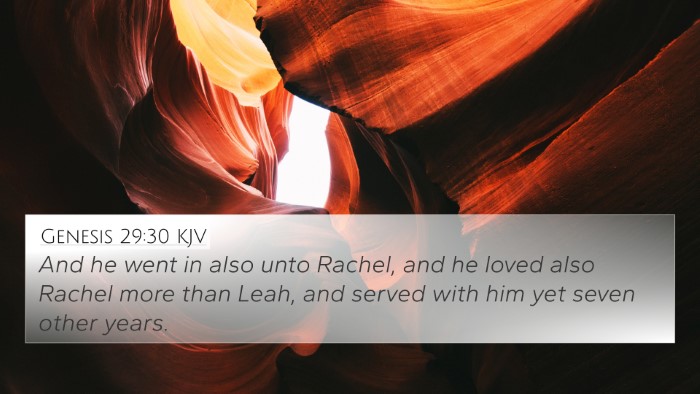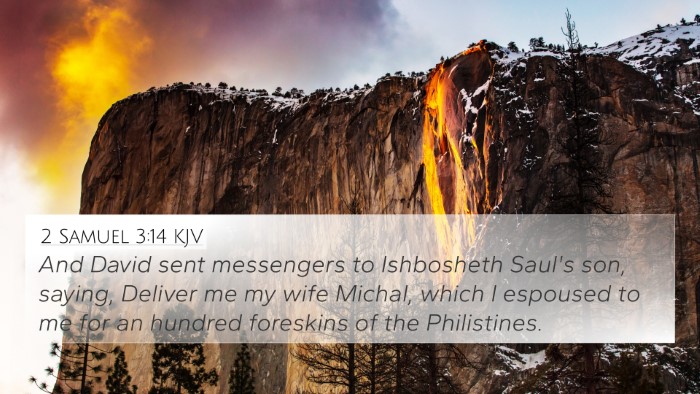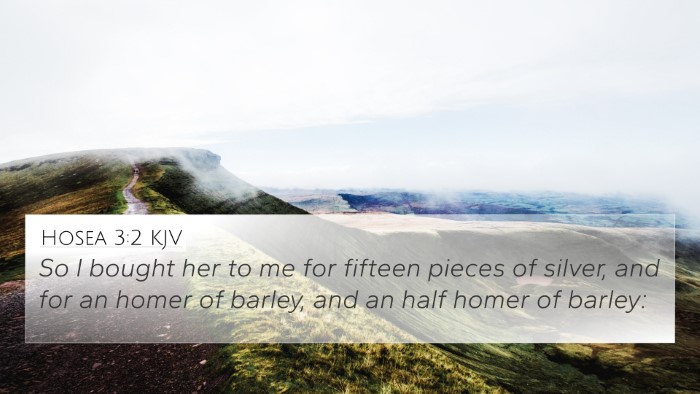Understanding Genesis 29:18
Verse: "And Jacob loved Rachel; and said, I will serve thee seven years for Rachel thy younger daughter." (Genesis 29:18)
This verse encapsulates Jacob's profound love for Rachel, demonstrating themes of devotion, commitment, and sacrifice. The narrative sets the stage for the complexities of love within the context of family dynamics, rivalry, and divine providence.
Summary of Insights
- Matthew Henry's Commentary: Henry notes that Jacob's choice to serve seven years illustrates the depth of his affection for Rachel. He emphasizes the cultural significance of labor in the context of marriage, where a bride price or service was customary. Jacob's willingness to endure hardship for the sake of love reveals a noble character and sets a precedent for commitment in relationships.
- Albert Barnes' Commentary: Barnes explores the implications of Jacob's actions, proposing that they signify not just romantic love, but also a covenantal commitment that reflects the broader narrative of God's plans for Israel. Jacob's conditions of service highlight the importance of sacrifice and the value placed on family relationships in the Hebrew culture.
- Adam Clarke's Commentary: Clarke elaborates on the symbolism of Rachel as a representation of beauty and desirability in Jacob's life. He also discusses the challenges Jacob would face due to the dynamics within Laban's household, foreshadowing future struggles that stem from love and jealousy.
Thematic Connections
Genesis 29:18 is a pivotal verse that opens discussions around the nature of love, commitment, and divine orchestration in human relationships. Several themes arise, including:
- Love and Sacrifice: Jacob's willingness to labor for Rachel emphasizes how love often requires sacrifice.
- Family Dynamics: This verse foreshadows tensions and rivalries that will occur in Jacob's life, particularly with Leah and Rachel.
- Divine Providence: The events surrounding this verse highlight how God orchestrates the lives of His people, setting them on paths that fulfill His divine purpose.
Cross-References to Genesis 29:18
Understanding Genesis 29:18 is enriched by cross-referencing various biblical texts. Here are some key verses to consider:
- Genesis 29:16-17: Discusses Laban's two daughters and sets the backdrop for Jacob's love story.
- Genesis 29:21: Jacob's expectation of marrying Rachel after his service reflects the cultural marriage customs.
- Genesis 30:1-2: The subsequent rivalry between Rachel and Leah illuminates the complications of his marriage.
- Deuteronomy 21:15-17: Offers insight into inheritance laws that relate to Jacob's family dynamics.
- Revelation 21:2: Highlights the concept of a bride adorned for her husband, giving a Christocentric view of love.
- 1 Corinthians 13:4-7: A description of love that echoes Jacob's commitment to Rachel.
- Song of Solomon 2:4: Provides an additional understanding of romantic love and longing.
Connections Between Bible Verses
This verse can be linked to other scriptures that deal with love and commitment, providing a broader context for understanding human relationships from a biblical perspective.
In terms of biblical interpretation, one might explore:
- Bible Concordance: Utilizing a concordance to track themes of love across the Old and New Testaments aids in deeper study.
- Bible Reference Resources: A guide to understanding biblical genealogies and love stories enhances comprehension of familial connections.
Conclusion
The verse Genesis 29:18 serves not only as a narrative of Jacob’s love for Rachel but also as a theological pivot point for understanding God’s plan in the lineage of Israel. The complexities of this love story give rise to themes relevant to modern readers, making the connections between these biblical texts vital for a comprehensive theological study.
Reflective Questions
To immerse oneself in the significance of this passage, consider the following:
- How can we apply the principles of commitment demonstrated by Jacob in our relationships today?
- What does this story teach us about the nature of love and sacrifice in our lives?
- In what ways does understanding the cultural background of this passage enrich our interpretation?
